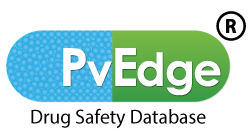Given the international dimension of adverse reactions reporting and the need to achieve harmonisation and high quality between all involved parties, ICSRs should be submitted electronically as structured data with the use of controlled vocabularies for the relevant data elements where applicable.
Scope of ICSR submissions:
- Expeditedness assessment
Only valid ICSRs should be submitted. Submission of a valid ICSR can be decided as per it’s expeditedness. This expeditedness depends upon the seriousness criteria and labelling parameters which we enter while processing the ICSR. As per the prescribed rules of submissions for many regulatory authorities of different countries, once the case will become serious and expected/unexpected/listed/unlisted (irrespective of labelling) the ICSR should be reported to the respective regulatory authority in a stipulated time frame (nothing but the regulatory timeline of ICSR reporting) and for some countries, this scenario is quite different which is completely dependent on the labelling criteria such as for some countries only serious unexpected/unlisted cases were reportable to the regulatory authority. Serious labelled/expected/listed cases were not reportable.
- Types of submissions
ICSR reporting is done via two ways i.e. based on source country and submission country. When source country is equal to submission country then the submission is referred to be domestic submission and when the source country is different than the submission country then the submission is referred to be international submission.
- MAH product authorization & submissions:
All medicines must be authorised before they can be marketed and made available to patients. In the European Union (EU; EEA region), there are two main routes for authorising medicines:
- Centralised route: Under the centralised authorisation procedure, pharmaceutical companies submit a single marketing-authorisation application to EMA. This allows the marketing-authorisation holder to market the medicine and make it available to patients and healthcare professionals throughout the EU based on a single marketing authorisation. Once granted by the European Commission, the centralised marketing authorisationis valid in all EU Member States as well as in the European Economic Area (EEA) countries Iceland, Liechtenstein and Norway. This is majorly used for innovative drug molecules. (e.g. life-saving drugs)
- National route: Most generic medicinesand medicines available without a prescription are assessed and authorised at a national level in the EU. Each EU Member State has its own national authorisation procedures.
If a company wishes to request marketing authorisation in the several EU Member States for a medicine that is outside the scope of the centralised procedure, it may use one of the following routes:
- Mutual recognition procedure, whereby a marketing authorisationgranted in one Member State can be recognised in other EU countries;
- De-centralised procedure, whereby a medicine that has not yet been authorised in the EU can be simultaneously authorised in the several EU Member States.
In case of MAH authorization in the non-EEA region in other countries starting from Canada, USA, Australia, India, Brazil, South Africa, Russia, China, Singapore, UAE, the respective product needs to get a unique approval MA no./MAH no. & ANDA no. for US-FDA (in case of generic molecules). The regulatory submission of ICSRs in both EEA and non-EEA is completely dependent on the MA/ANDA approval status of the company product in the corresponding region/country. If any company suspect product has marketing approval in multiple countries, then, it is the liability of MAH to submit any ICSR of that company suspect product to all those respective regulatory authorities of authorized countries where their product is marketed. So every country’s regulatory authority is having its own set of submission rules and defined timelines for submission as per the seriousness, source, and listedness of ICSR.
- Regulatory timelines for submission of ICSRs:
The clock for the submission of a valid ICSR starts as soon as the information containing the minimum criteria has been brought to the attention of the national or regional pharmacovigilance centre of a competent authority or of any personnel of the marketing authorisation holder, including medical representatives and contractors. This date should be considered as day zero. It is the first day when a notified competent authority or marketing authorisation holder gets knowledge of a valid ICSR, irrespective of whether the information is received during a weekend or public holiday. The timelines for submission are based on calendar days. For ICSRs described in the medical literature the clock starts (day zero) with the awareness of a publication containing the minimum criteria. When additional significant information is received for a previously submitted case, the clock for the submission of a follow-up report starts again from the date of receipt of the relevant follow-up information.
In general, the submission of serious valid ICSRs is required as soon as possible, but in no case later than 15 calendar days after initial receipt of the information by the national or regional pharmacovigilance centre of a competent authority or by any personnel of the marketing authorisation holder, including medical representatives and contractors. This applies to initial and follow-up information. Where a case initially sent as serious becomes non-serious based on new follow-up information, this information should still be submitted within 15 days; the submission time frame for non-serious reports should then be applied for the subsequent follow-up reports. In EMA, the submission of non-serious will also be done within 90 calendar days of the initial receipt date but for US-FDA non-serious cases are not reported. There are exceptions for some of the countries for which the reporting timelines are different as per the seriousness and listedness criteria. E.g. for ICSRs from Brazil (domestic)- life-threatening or death ICSR with an unexpected event will be reported in 7 days. For Iran (Domestic) serious/unexpected will also be reported in 7 days.
Challenges in ICSR submissions: Overall ICSR submission is a cumbersome activity which involves checking of reportable country, type of report to be submitted. There are few of the challenges explained below.
- Underreporting of ICSR: Full information is not coded in the case as mentioned in the source document
- Capturing the wrong information in the database may result in the wrong report submission
- Incomplete ICSR processing may result in blank fields in the database which will impact on incomplete nodes in the XML file and CIOMS or Medwatch. This may lead to underreporting
- Missing the use of XML validator: If end-user misses using the XML validator and fails to remove the E2B errors observed in the ICSR, it will result in failure of submission of ICSR report in the respective regulatory authority
- Improper selection of submission rules with respect to submission country may result in a wrong destination of submission and it will lead to non-compliance
We at Sarjen systems came up with an automated solution for the auto-scheduling the ICSR reports integrated into PvEdge® itself which will help immensely in generating and scheduling the country-specific reports by complying with the submission rules.
Below are a few of the exclusive benefits which we provide in PvEdge® for regulatory submissions of ICSRs.
- PvEdge® offers different report submission like CIOMS, MedWatch, VAERS, MDAERF, R2 and R3 XMLs etc.
- PvEdge® has pre-defined set submission rules hardcoded as per the requirement of regulatory authorities which are responsible for the accurate submissions.
- In PvEdge® user can easily track the repetitive submissions as well as regional submission
- PvEdge® also has a provision of firing alerts according to the case submission priority
- Accordingly, a compliance report can be generated with tracking delays with appropriate reasons.
- PvEdge® is readily available for gateway connections for automated submissions of reports
- We also offer provision to attach the acknowledgement (positive & negative) file against the submission record
- Manage case versions automatically in different regions when follow-up is received



